In the summer, the demand for rooftop solar power installation in Nghe An increases sharply.
Summer is coming, the demand for electricity consumption increases, many small and medium-sized businesses and households have invested in installing solar panels on their roofs to supplement the power source for daily life, production and business, while reducing production costs.
Practical benefits
In the Quynh Luu and Hoang Mai areas, according to a facility specializing in consulting and installing solar panels, since the beginning of the year, especially in recent days, the unit has continuously received orders to install solar panels, installing them for a family every few days, with a capacity of only 6-8 kWp, the price is only 65-70 million VND. If a family installs additional batteries, the cost will increase by several tens of millions of VND.
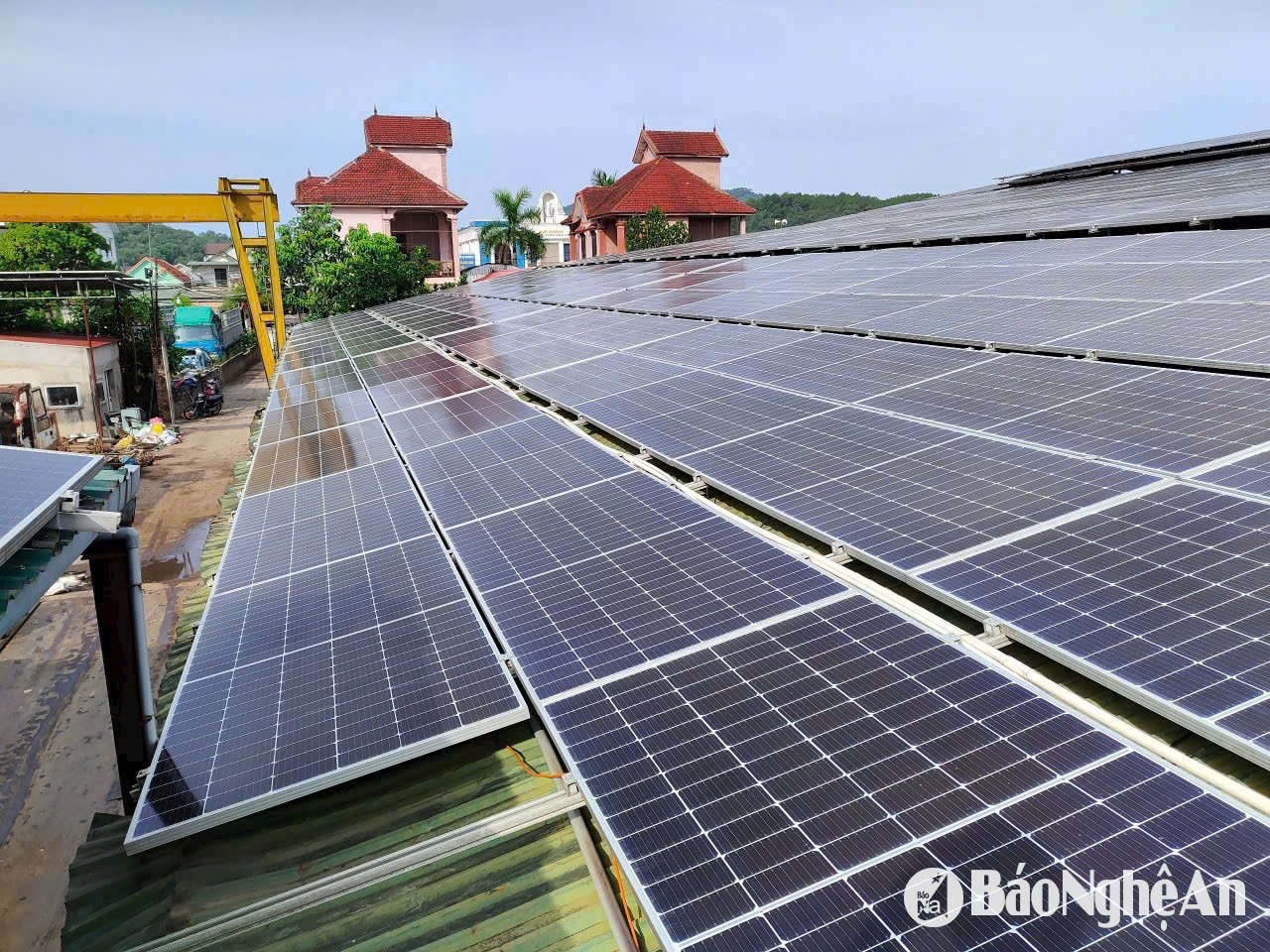
Learn more, it is known that since the Government issued Decree 135/2024/ND-CP regulating registration procedures and supporting the development of solar batteries and recently Decree 58/2025/ND-CP replacing Decree 135/2024 detailing the implementation of the Electricity Law and guiding the registration procedures for investment in solar power installation and new types of energy, continuing to maintain open policies, many people have proactively installed solar batteries. According to regulations, households that install electricity production for their own use, with a capacity of less than 100 kWp, do not have to register, in case of surplus, they can sell to the grid no more than 20% of the capacity.
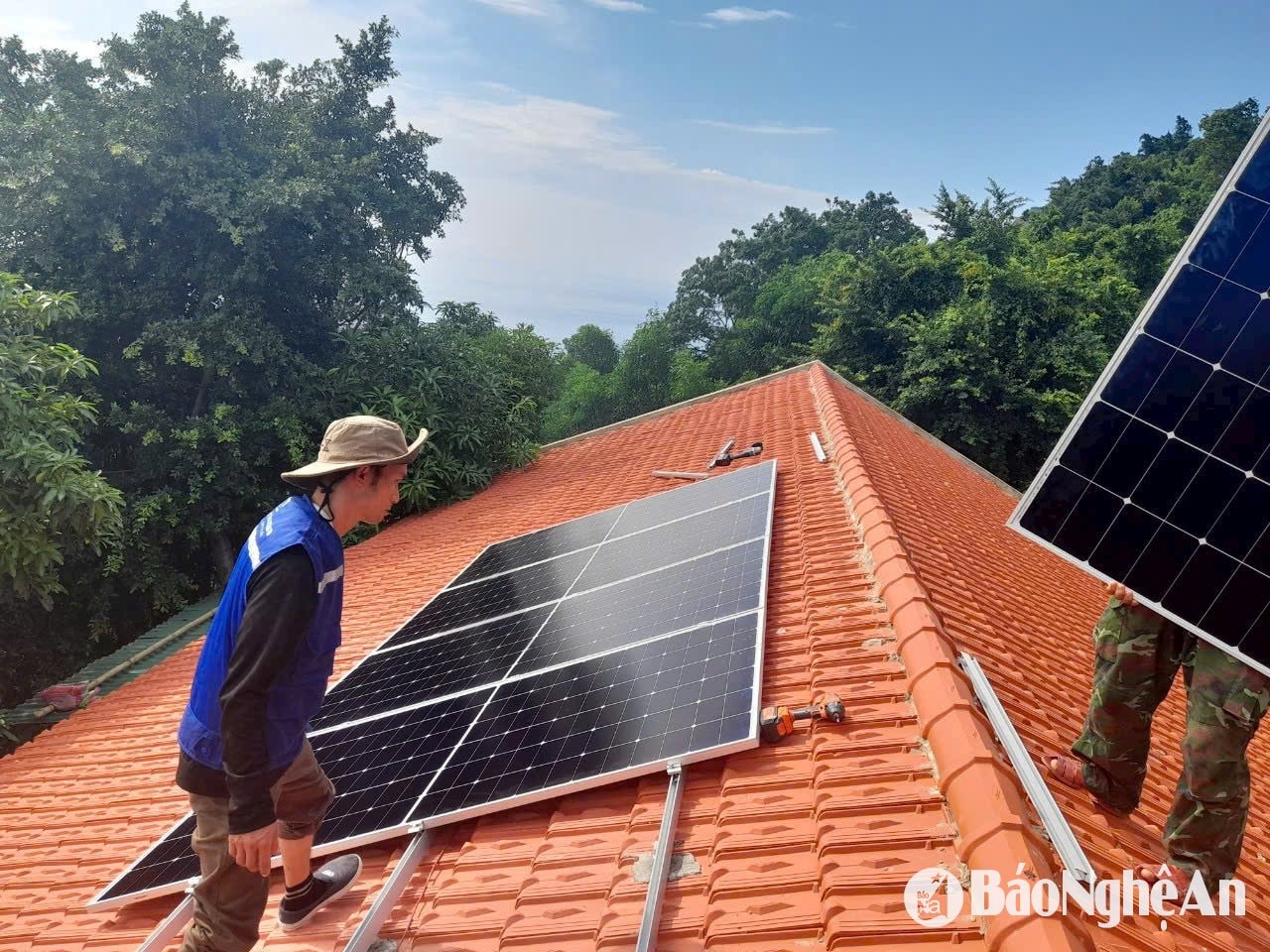
A household on Le Hoan Street, Hung Phuc Ward, Vinh City, who has just installed solar panels on the roof for coffee business, said: Since installing solar power, the family has been using electricity comfortably. When it is sunny, the air conditioner is turned on early, so during peak hours at noon, the amount of electricity consumed is also less. Installing solar power for business has another advantage: the price is only half as cheap. Normally, the price of electricity for business is about 3,500 - 3,800 VND and during peak hours it can be even higher (due to the cumulative grid electricity price).
Meanwhile, Mr. Quang Dung - the owner of a new solar panel installation on Duy Tan Street, Hung Dung Ward, Vinh City, said: His family owns a supermarket and a coffee shop, so they pay over 5 million VND for electricity every month. Since May 10, EVN has just announced an increase of 4.8% compared to the average retail electricity price, so his family decided to install a solar panel system on the roof with a capacity of 15 kWp, costing nearly 180 million VND.
Since having solar batteries, the air conditioner, fan and refrigerator run smoothly; the first month the electricity bill reduced by 2/3. With such a reduction, only 3 years is enough to offset the initial investment cost.
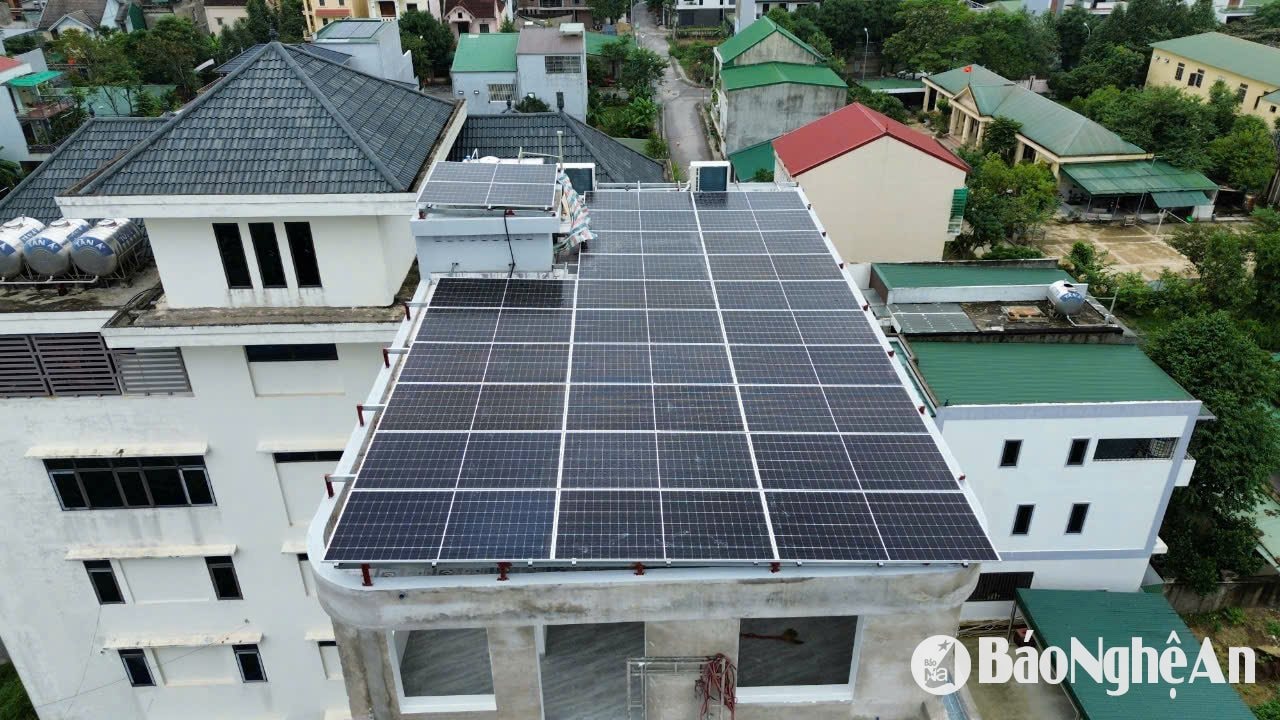
Talking to us, Dr. Le Khac Binh - Faculty of Technology, Vinh University of Technical Education said: Currently, the cost of installing solar power has decreased significantly, installation materials and equipment are becoming more and more popular. A few years ago, to install solar panels for a family with a capacity of 8-10 kWp, the cost was from 130-150 million VND, but now it has been reduced by half to about 70-80 million VND, an average of only 7-8 million/kWp. Installing panels on the roof, in the summer, achieves maximum efficiency when the panels cover and reduce the heat for the roof.
Nowadays, there are more and more construction and technical consulting enterprises, so the inspection and maintenance of solar panels as well as equipment such as transformers and inverters are also convenient. However, according to the recommendation of the Energy Management Department, Department of Industry and Trade, people should choose reputable installation enterprises for consultation and installation to ensure safety, transparency in prices; have warranty and be periodically instructed on exploitation and cleaning to effectively exploit the battery storage for solar panels...
The representative of the Energy Management Department, Department of Industry and Trade also said: Since the mechanism for installing "self-produced, self-used" solar batteries was established, the Department has only developed a licensing process for power generation projects over 100 kW - 1 MW due to large loads. Therefore, recently, the Department as well as the Electricity industry have not yet counted and managed the group of households that installed and the capacity. However, compared to before, people's awareness of renewable energy and solar batteries has changed and comes from the economic benefits of proactive people.
Need a roadmap
According to Decree No. 58/2025/ND-CP dated March 3, 2025 guiding the implementation of the Electricity Law, the legal corridor for renewable energy development, including solar energy, wind energy and other types of energy, has gradually formed and been completed.
Accordingly, in addition to investing in electricity production for self-use, there have been policies to encourage organizations and individuals to participate in investing in renewable energy sources, gradually realizing the commitment to reduce emissions, serving the transformation of sustainable national energy planning.
According to data shared at the workshop organized by EVN, the current demand for electricity increases by 7-9% per year. While the current power source structure is quite dependent on thermal power and coal power, it will have to change in the near future. According to the roadmap, the current main forms of energy such as thermal power will decrease from 43% in 2025 to 31% in 2030 and 10% in 2040; similarly, hydropower will decrease from 34% in 2025 to 17% in 2030 and 11% in 2040.
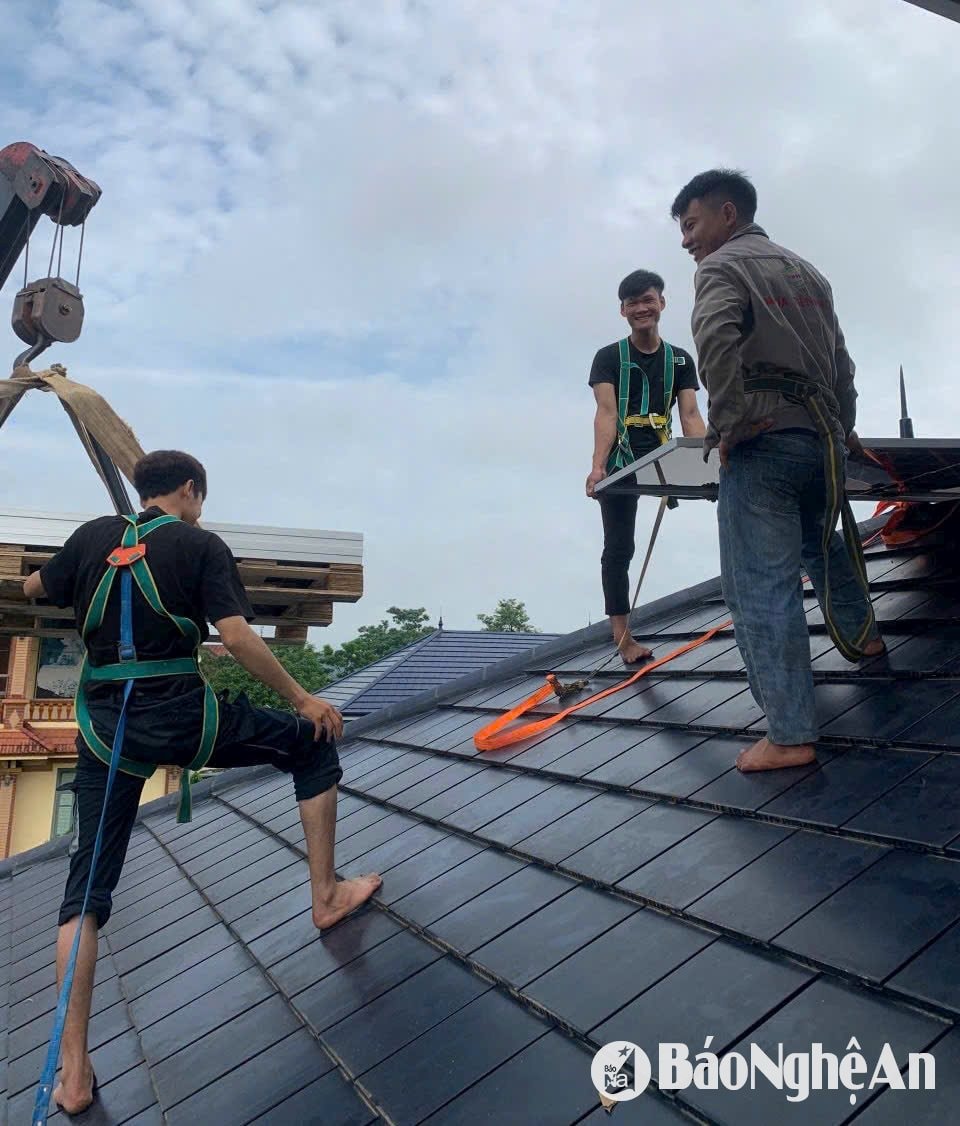
In the opposite direction, renewable electricity including wind, solar, gas and biomass will increase from 27% in 2025 to 40% in 2030 and 58% in 2040.
In addition, according to international commitments on environmental protection and to integrate and export products to developed countries' markets, your side will have constraints requiring our country as an exporting country to certify goods with renewable energy certificates (RECH), international renewable energy certificates (I-REC) or certificates of guaranteed energy origin (GO)...
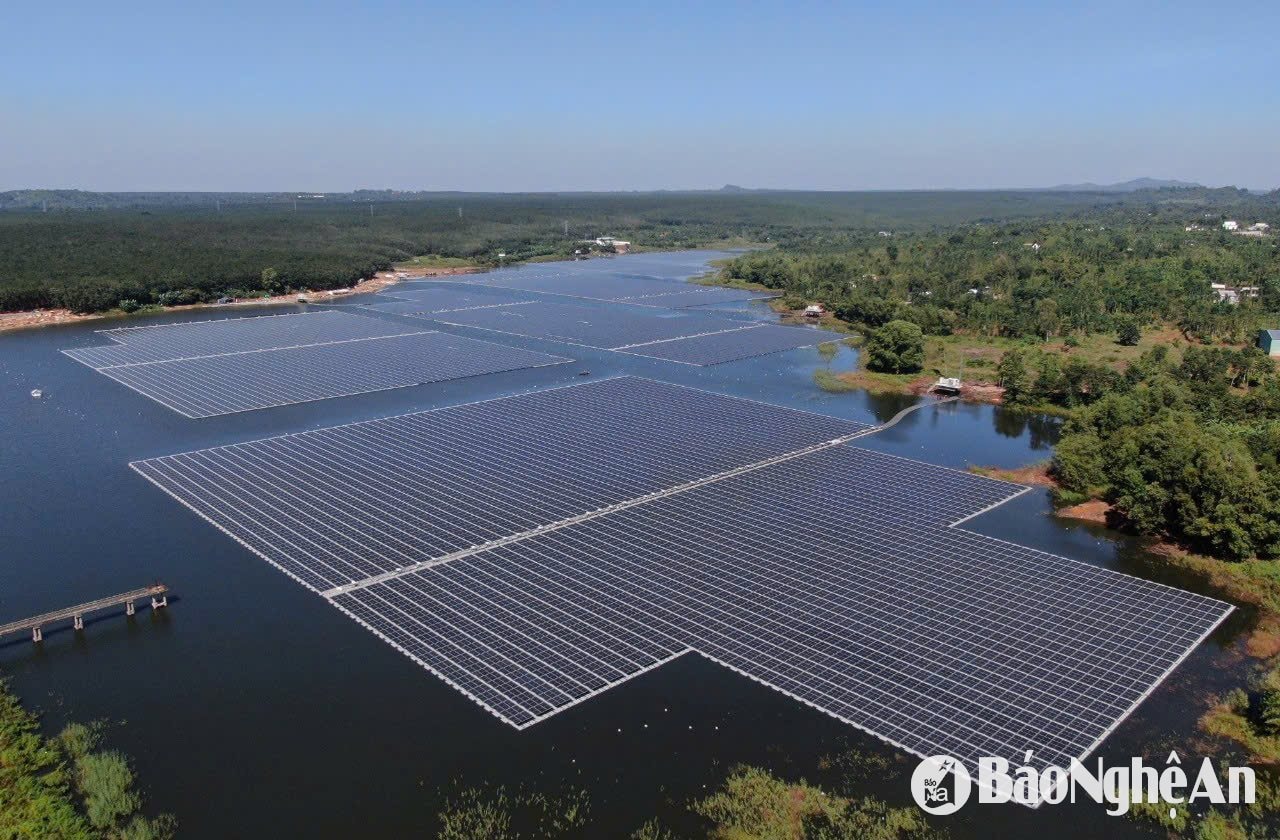
Therefore, businesses that want to grow, export goods internationally or become satellite businesses with FDI enterprises in the area to participate in the global production and supply chain must have an investment roadmap for clean energy and safe energy.
A representative of the Nghe An Provincial Department of Environmental Protection assessed: Although some enterprises have invested in renewable energy to reduce production input costs, it has not really become popular and become a trend. Most recently, Hoa Sen Group has invested nearly 5 billion VND to install solar panels with a capacity of over 1 MW at Dong Hoi Industrial Park (Hoang Mai Town). Similarly, some FDI enterprises in VSIP and WHA Industrial Parks have invested in installing solar panels on factory roofs, with a total estimated capacity of about 3-5 MW. The whole province has nearly 100 enterprises installing rooftop solar power with a capacity of about over 80 MW.
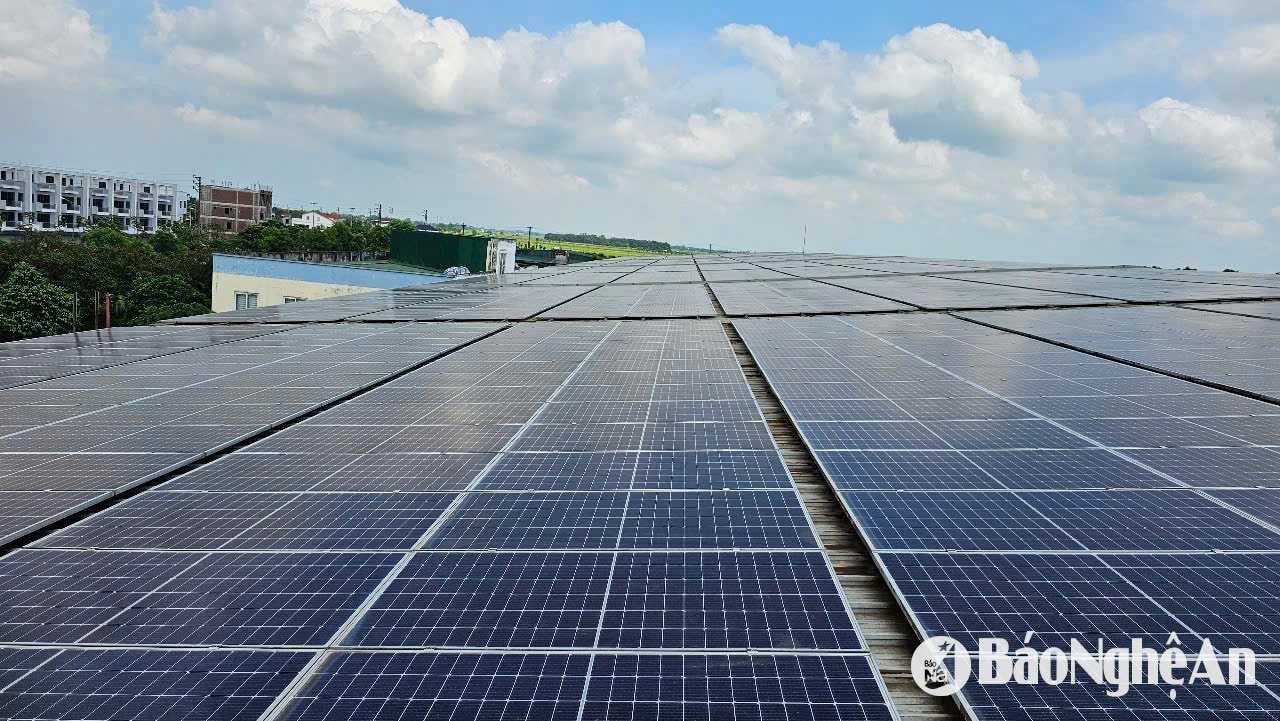
However, according to Mr. Che Minh Tai - Energy Management Department, Department of Industry and Trade, compared to the southern provinces, the number of enterprises investing in renewable energy in Nghe An is still modest, most recently, only 1 enterprise installed over 1 MW but has not yet operated. This unintentionally puts pressure on energy supply during peak summer season, electricity production from hydropower decreases, forcing large electricity-using enterprises to save and reduce load, affecting production efficiency.
Currently, there is huge room for developing renewable energy, especially rooftop solar power, aquaculture ponds, wind power or biomass.
In Decision No. 768/2025/QD-TTg dated April 15, 2025 approving the adjustment of the VIII power plan, based on the province's proposal, the Prime Minister agreed to allow Nghe An to adjust and supplement the power plan for the period 2025 - 2030 by 232 MW and the period 2031 - 2035 by an additional 49 MW. Obviously, along with the LNG power project with a total investment capital of nearly 2.1 billion USD and a capacity of 1,500 MW in Dong Hoi Industrial Park, which is undergoing investment approval procedures, this is an opportunity for Nghe An to attract and develop more clean energy and renewable energy projects for production and life.
(Energy Management Department, Department of Industry and Trade)

.jpg)

